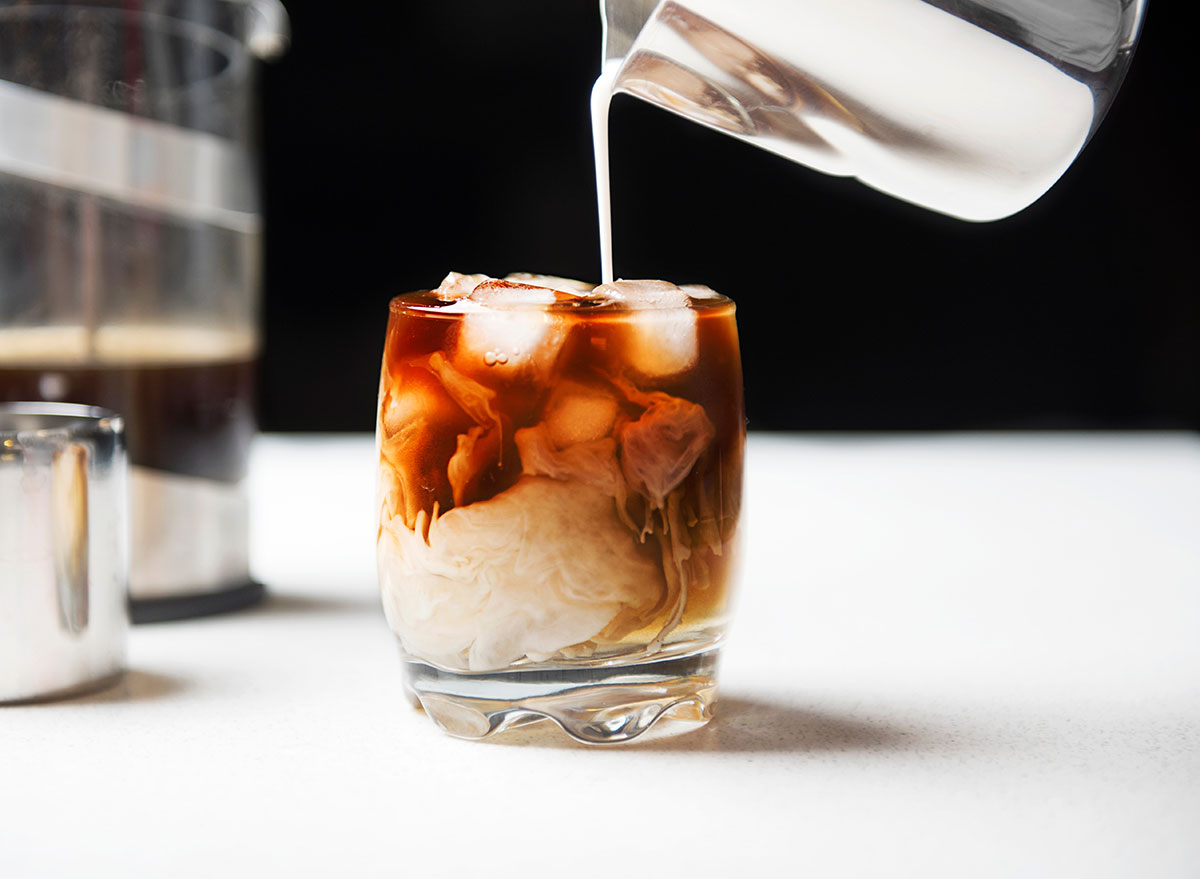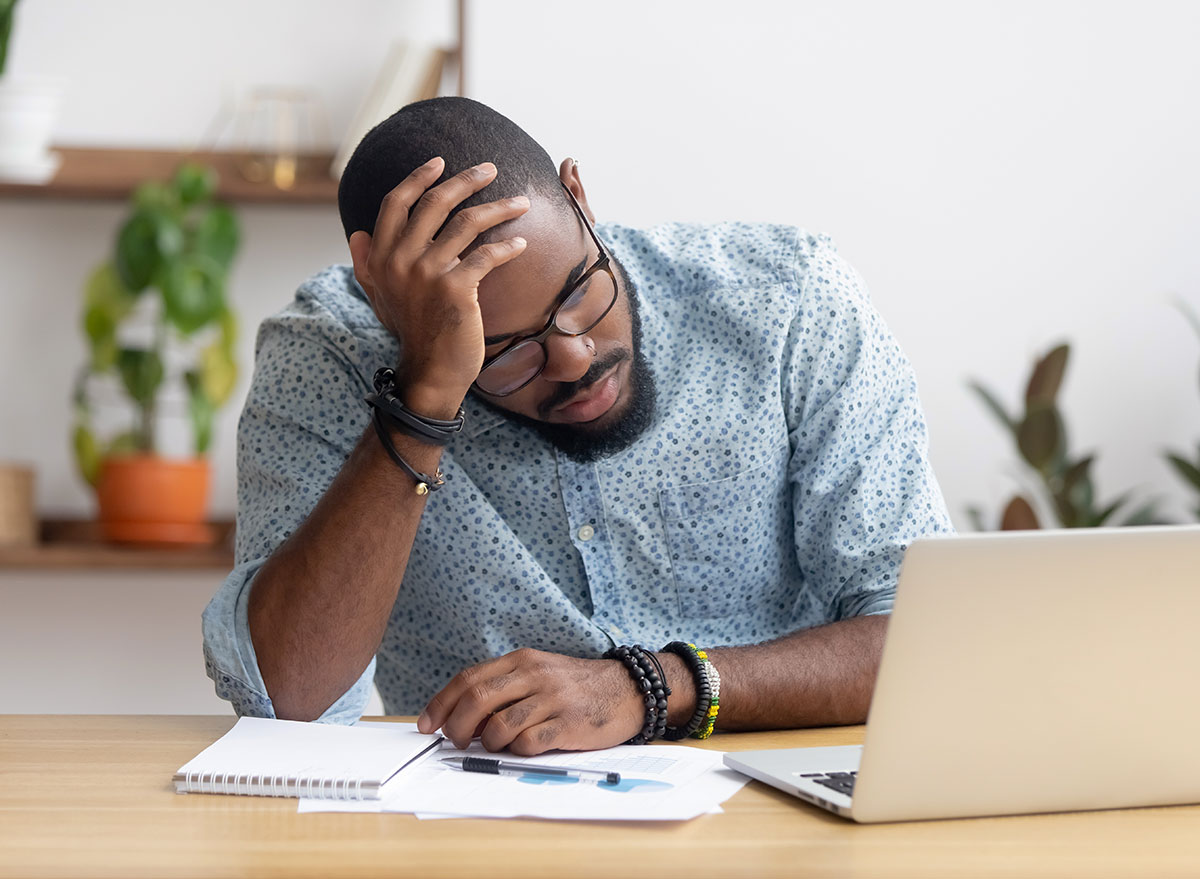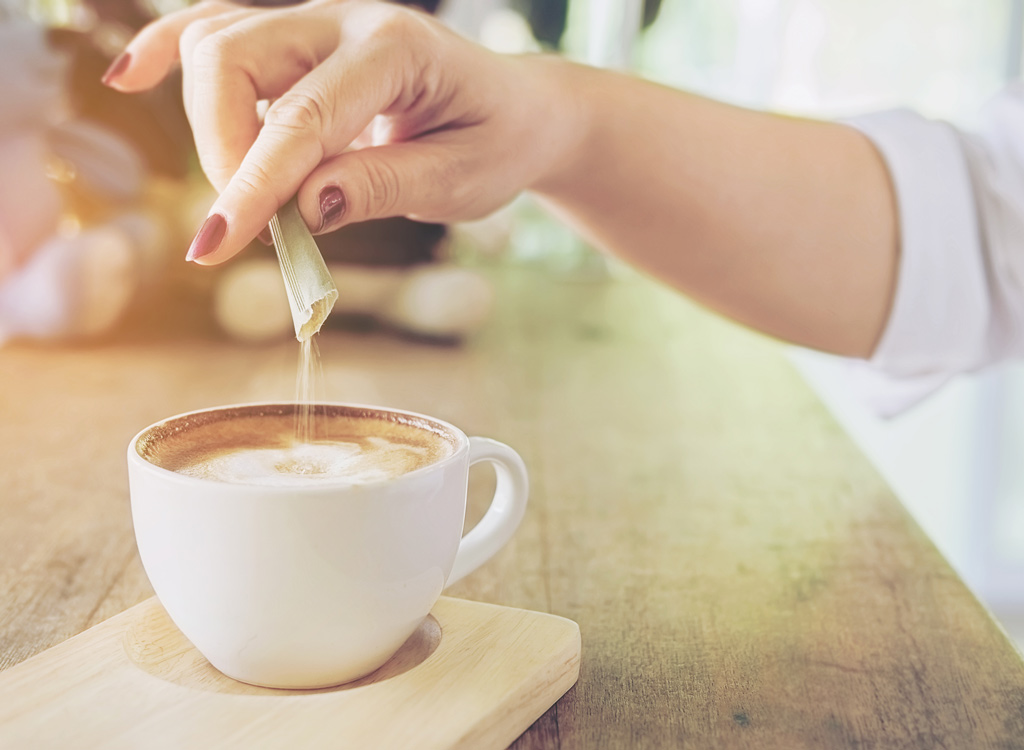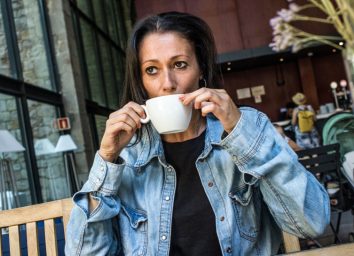Side Effects of Giving Up Coffee, According to Science

Although there can be a lot of health benefits of drinking coffee on a regular basis, it’s clear that intaking a significant amount of caffeine on a regular basis can take a toll on your body. Even if the number of cups of coffee you can have in a day is relatively high, caffeine can still play a significant role in your body’s health. So if you’re one who wants to wean yourself off of your daily caffeine, we rounded up some of the side effects you’ll experience by giving up coffee. And for more healthy tips, be sure to check out our list of The 7 Healthiest Foods to Eat Right Now.
You may experience some headaches.

Depending on how much caffeine you consume on a regular basis, you’ll likely experience some minor withdrawal symptoms as you give up coffee. This includes headaches, which is a very common symptom of giving up caffeine. That’s because caffeine narrows the blood vessels that surround your brain, so when you stop drinking it, those blood vessels can expand and cause some pain, according to WebMD.
Here’s What Happens to Your Body When You Cut Out Caffeine.
You’ll likely feel fatigued.

It’s no surprise that coffee can help with the feeling of fatigue. Drinks with caffeine in them, like coffee, can help improve energy levels, as well as your memory, mood, and various other brain functions, according to Queensland Health. Giving up coffee would mean giving up this slight energy boost at the beginning of your day, which can lead to fatigue at first.
However, without the caffeine boost, our body is able to rely on other normal functions to help us feel energized. Without caffeine, you’ll likely get more sleep and feel less anxiety—two of the biggest culprit for the feeling of fatigue in one’s body.
If you’re curious, Here’s Exactly How Much Caffeine Is Too Much Caffeine.
You’ll probably sleep better.

As we mentioned, getting better sleep is a key side effect of giving up coffee. According to the Mayo Clinic, coffee can wreak havoc on your sleep patterns—especially if you’re an afternoon coffee drinker. Even if it’s a small amount of sleep you’re losing, the Mayo Clinic points out that “even small amounts of sleep loss can add up and disturb your daytime alertness and performance.”
Here are 7 Healthy Diet Changes That Help You Sleep.
You won’t feel as anxious.

If you’re one to drink a lot of coffee a day, you’ll probably have increased feelings of anxiousness. According to research performed by the Center for Occupational and Health Psychology, even people who have a little over a small cup of coffee a day (about 150 milligrams of caffeine) can induce anxiety for some people. This anxiety can include rapid heart rate, heavy breathing, and panic.
By giving up coffee, you give up one thing that may have been giving you anxiety without even realizing it.
Your teeth will be healthier.

Heavy coffee drinkers may already be familiar with the slightly stained teeth they have from drinking the bean juice regularly, according to the Journal of the American Dental Association. Coffee is highly acidic, which studies show can lead to enamel wear and decay.
You’ll decrease your added sugar intake.

For black coffee drinkers, this won’t matter as much because there’s no sugar in black coffee. But if you’re giving up sugary lattes and coffee creamers, you’ll experience a significant decrease in your added sugar intake, which is a beautiful thing for your body. That’s because added sugars (the type of sugar that isn’t naturally occurring in food but added into enhance flavor) can provoke inflammation and increase your risk of chronic diseases.
Get even more healthy tips straight to your inbox by signing up for our newsletter!








